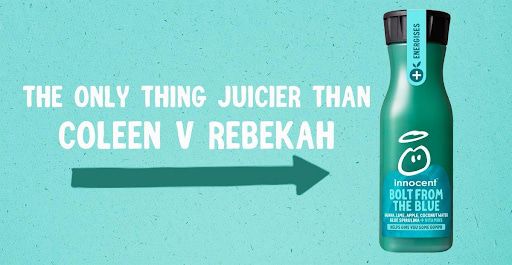How to be reactive on social media


Lucy Askham Senior Social Media Executive
3 min read
Thursday, 1st September 2022
From Ryanair's iconic TikTok, to Aldi’s Cuthbert the Caterpillar phenomenon, and not forgetting Innocent Drinks response to the Coleen Rooney/ Rebekah Vardey controversy, reactive social media strategies have created some of the most memorable online moments of the past few years.
At its core, reactive social marketing is when a brand proactively engages with and responds to trends, viral news stories, pop culture or major events.

At a time where social media has an ever growing influence over our decisions as consumers, it’s now more important than ever to connect with and engage with our audiences through social media. Reactive marketing provides a chance to be creative and engaging in a meaningful and/or humorous way. But, building a strong presence online is an integral part of this strategy and this can’t be achieved overnight. Having a solid plan in place and the ability to publish responsive content will ensure your brand always has its finger on the pulse and is at the forefront of conversations.
Social media users are now becoming more aware of reactive strategies, and simply tagging other brands to push for additional exposure won’t always work. There are some key points to keep in mind when thinking about being reactive...
WHAT’S IMPORTANT TO CONSIDER?
- Make sure that the topic directly relates to the business or industry you’re in - don’t just jump on every bandwagon.
- The topic gives you a chance to express your brands’ personality.
- It provides an interesting topic of conversation for your audience.
- Avoid topics that don’t align with your business’s personality or values.
- Avoid topics which may offend your target audience.
- Avoid anything too controversial or in poor taste.
Being reactive, means speed. A lot of the time posting reactive content may mean posting without sign-off - this requires trust. You need to be certain that you are able to replicate your brand's tone of voice and showcase their personality without relying on needing sign-off from multiple points of contact (or at least make sure you have a manager on side to give you sign-off at the speed of light). That way, you will be able to hop on relevant trends while they’re at their peak and reduce multiple back-and-forth communications which might mean you miss the moment.
Demonstrating the value of reactive marketing through regular reporting and communication is also key. Remember to emphasise how successful your strategy has been, showcasing what content has worked and why. Similarly, it gives you an opportunity to flag what may have not worked and your learnings going forward.
Still don’t believe us that reactive marketing is something every brand should be a part of? Well, take a look at the below results. Over a 2 month period, through a consistent and highly relevant reactive strategy we took a dormant Twitter channel from:
- 16.5K impressions to 610.2K impressions (+2,890% vs previous 3 months)
- 11 likes to 6.2K likes (+56,264% vs previous 3 months)
- 2 retweets to 616 retweets (+30,800% vs previous 3 months)
- 0 replies to 417 replies (+100% vs previous 3 months)
With tons of app updates and constant social media notifications it can be easy to lose track and miss opportunities on some great content that could go viral! It’s also worth noting that your audience could lose interest if they’re being bombarded with promotional messaging. So why not give reactive marketing a go!
CONTACT ME
Here at Rise, we’ve always got our finger on the pulse. Want to chat more about how you can implement reactive marketing into your social media strategies? Drop me an email: lucy.askham@riseatseven.com
